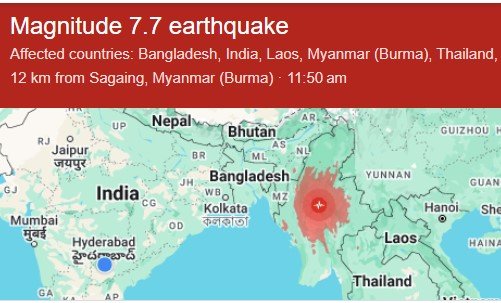Hyderabad: In a chilling tale that underscores the deep-rooted caste divisions still prevalent in rural India, a young man’s life was tragically cut short due to his love for a woman from a different caste. The murder of Vadlakonda Krishna, a Dalit youth, has become a heartbreaking reflection of the social prejudices that continue to shape lives in some parts of the country, even decades after India’s independence and the efforts of progressive movements led by the Communist Parties.
Krishna’s murder, believed to be an honor killing, was carried out by those closest to him. The shocking details that have emerged point to a family feud fueled by caste hatred and a grandmother’s obsessive disapproval of an inter-caste marriage. Six individuals, including family members and others involved, have been arrested in connection with his brutal murder.
Love Amidst Hatred
Krishna, also known as Mala Banti, was deeply in love with Bhargavi, an upper-caste woman from the village of Pillalamarri. Their love story began three years ago, but it was one fraught with obstacles. Bhargavi’s family, bound by rigid caste norms, disapproved of her relationship with Krishna. Despite their opposition, the couple’s bond grew stronger. Bhargavi’s parents tried to force her into an arranged marriage with another man, but their plans were thwarted when Bhargavi chose to elope with Krishna in August of last year. The couple got married in secret in Nakirekal, hoping that love might overcome the societal walls built around them.
However, their joy was short-lived. Bhargavi’s brothers, enraged by the union, could not accept the marriage. They viewed Krishna’s defiance as an affront to their caste and family honor. Among them, it was Bhargavi’s grandmother, Buchamma, who harbored the most intense resentment toward the young man, refusing to let go of her disapproval. Her unyielding stance against the inter-caste marriage became a driving force for the violence that would follow.
The Murder: A Sinister Plot
The situation took a deadly turn when Bhargavi’s brother, Naveen, a former friend of Krishna, plotted the murder. His desire to please his grandmother and avenge what he saw as a stain on his family’s honor led to a chilling act of betrayal. With the help of two other men, including Bairu Mahesh from Thallagadda, Naveen initially attempted to murder Krishna on January 19. When that failed, they resorted to more violent means, eventually killing Krishna last Sunday.
The crime didn’t end with the murder. In a grotesque display of cruelty, Naveen and his accomplices transported Krishna’s lifeless body and showed it to Buchamma, seeking her approval as though the sight of her grandson’s death would somehow validate their actions. But the tragedy didn’t stop there. The perpetrators then decided to dispose of Krishna’s body far from home, dumping it 100 kilometers away near the Musi canal on the Jangaon road.
Caste Divisions and the Struggle for Identity
This case lays bare the toxic grip of caste on relationships and individual lives, a force that continues to tear apart families and communities in India. Despite legal reforms and the decades-long struggle of various social movements, the caste system still exerts significant influence, especially in rural areas. In a society where love transcends caste for some, for others, such unions are seen as shameful violations of tradition and honor.
The murder of Krishna is a tragic reminder of how caste-based discrimination, sometimes masked as familial duty or honor, can destroy lives. While progressive changes have been made in legislation and public perception, the deeply ingrained prejudices persist, especially in regions where traditional views hold sway over modern thinking.
This story also highlights the complexities of social hierarchies in India, where caste lines, despite being officially abolished, still govern the everyday lives of millions. Krishna and Bhargavi’s tragic tale speaks to the urgent need for change — not just in laws but in the hearts and minds of those who continue to live by these ancient and harmful divisions.
As the police continue their investigation and more details are revealed, one can only hope that the tragedy of Krishna’s death will serve as a stark reminder of the need for greater awareness and social change in India’s ongoing battle against caste-based violence.


